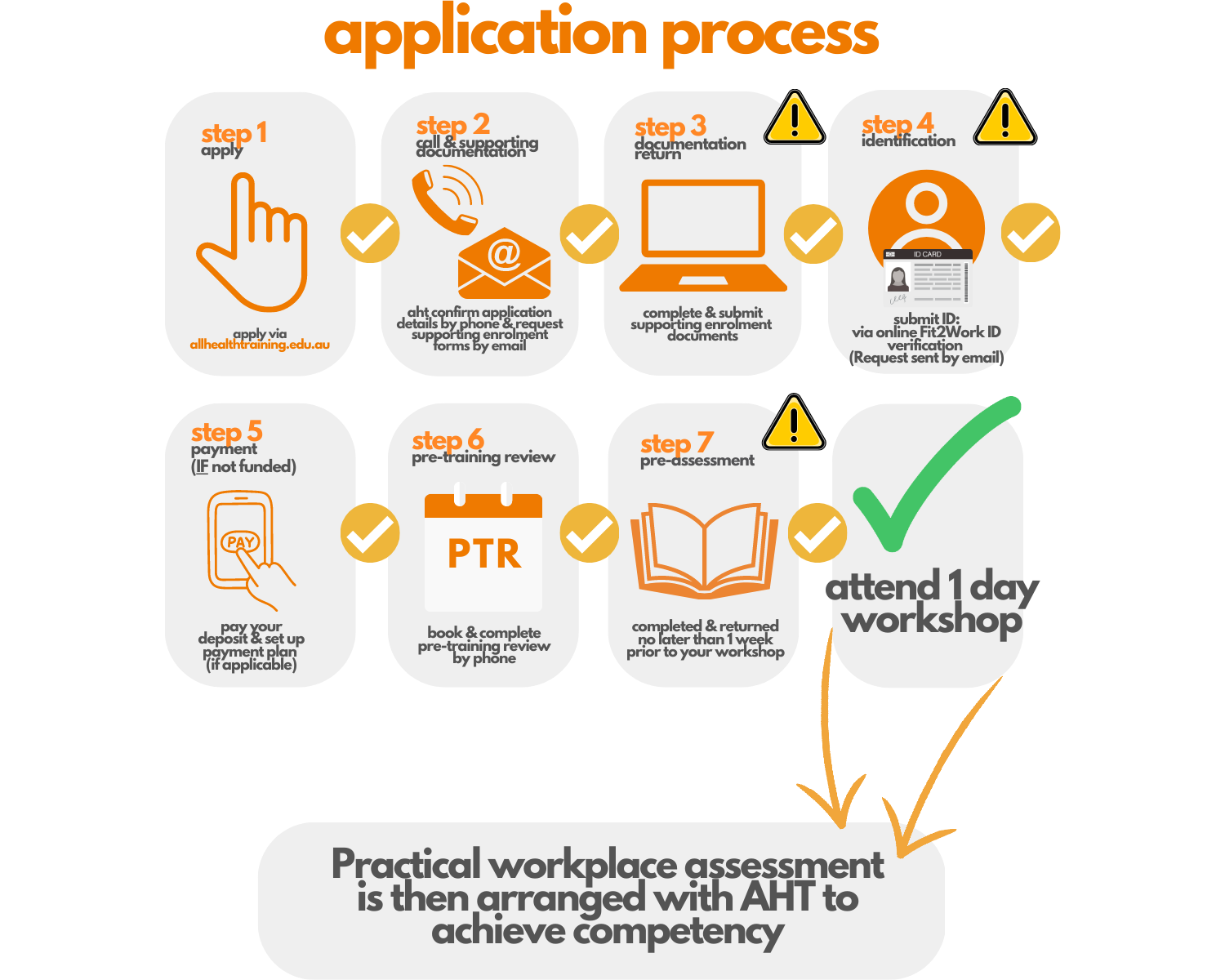This nationally recognised skill set is designed for support workers in aged care, disability, and community settings who are required to assist clients with medication. This course provides the essential knowledge and hands-on skills to support clients in safely self-administering medication, in line with current legislation and best practice. You’ll learn how to recognise healthy body systems through basic anatomy and physiology, prepare for and provide medication assistance including checking medication charts and confirming client identity, support clients during self-administration, and complete accurate documentation while identifying and reporting any concerns.
This skill set can also contribute towards qualifications such as CHC33021 Certificate III in Individual Support and CHC43121 Certificate IV in Disability Support.
At All Health Training we’re dedicated to inclusivity. We embrace access and equity principles, and we invite individuals with disabilities and from First Nations communities to apply. We believe in the strength of diversity and are here to support every learner in reaching their potential

$475
Student Payments
If you are attending as part of a group via your employer – course fees are coordinated with your employer.
If you are attending a public workshop at AHT – course fees are an individual responsibility and will be paid in full on application.
Additional Fees (If applicable)
Please refer to the Student Handbook available on our student resources page, for a comprehensive list of additional fees that may be applicable
The Assist Clients with Medication Skill Set consists of two (2) units of competency
| Unit Code | Unit of Competency | |
| HLTAAP001 | Recognise healthy body systems | |
| HLTHPS006 | Assist clients with medication |
Opportunity For Credit Transfers (CT)
If students have already successfully completed unit/s of competency which are included within the qualification AHT offers, credit may be granted.
Opportunity For Recognition Of Prior Learning (RPL)
Competencies gained through other formal study or experience may be acknowledged through a recognition process
Course Structure
The program is designed to include a combination of practical application and demonstration of skills, research, analysis and completion of competency based workbooks.
This workshop is designed to equip healthcare workers with increasing their knowledge and understanding of the importance of progress note taking for a variety of settings.
Learn to recognise common issues, spot warning signs of crises, and offer effective support. Join us to empower yourself and others in fostering a healthier community.
Learn to recognise common issues, spot warning signs of crises, and offer effective support. Join us to empower yourself and others in fostering a healthier community.